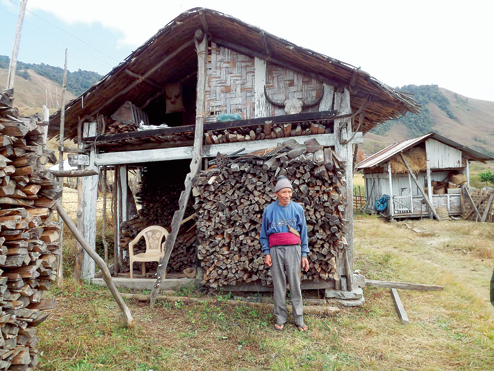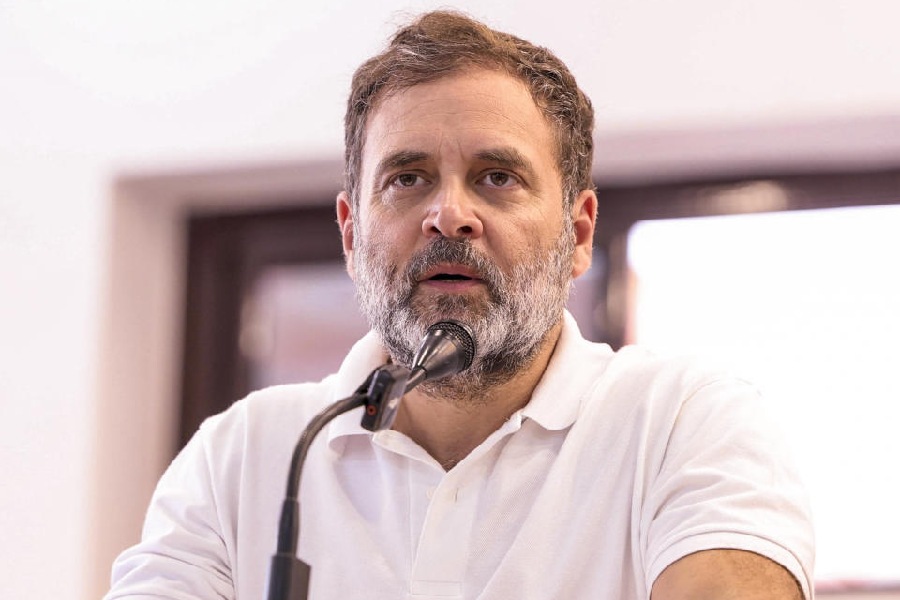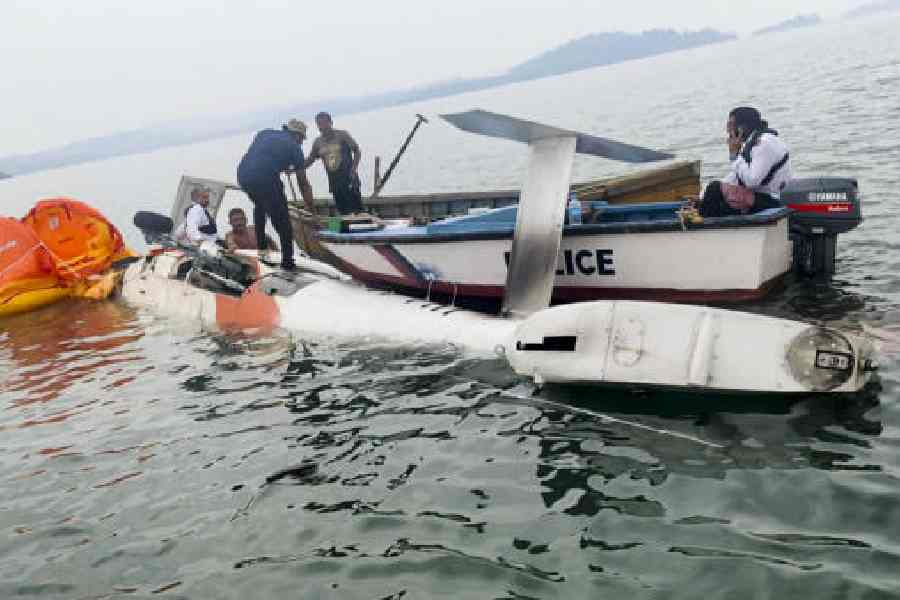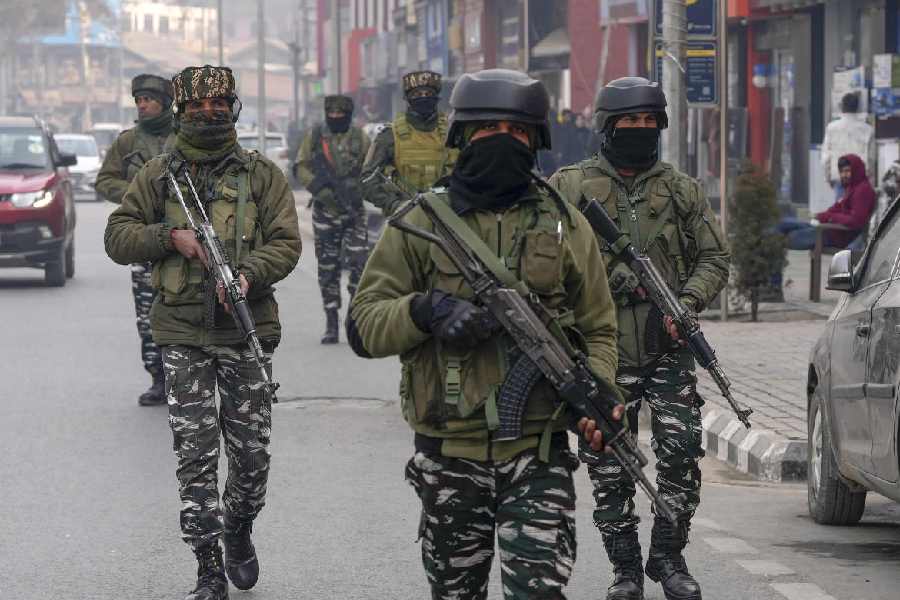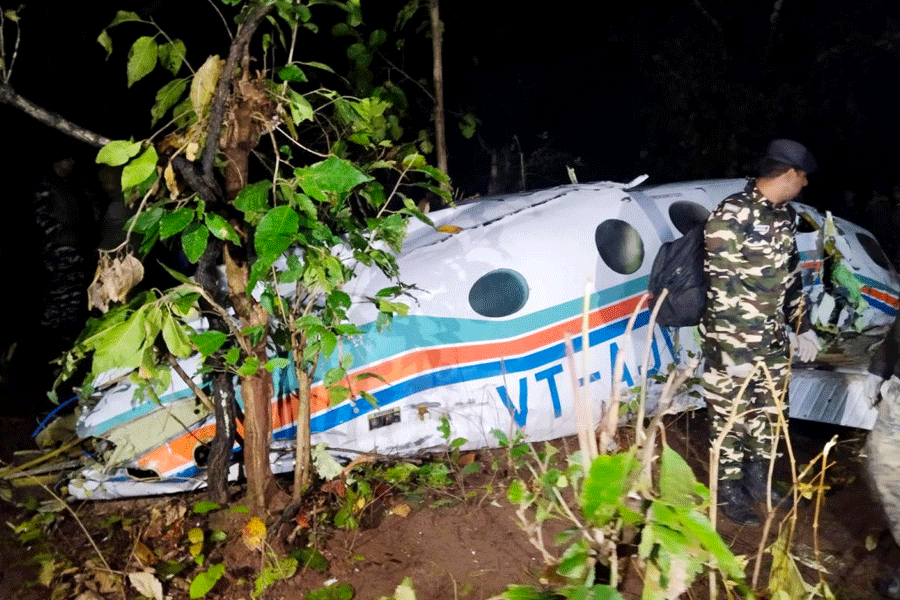 |
| The hut Doge Phale uses for storing wood. Pictures by Pullock Dutta |
Mechuka (Arunachal Pradesh), Nov. 13: The skull of the mithun sitting on the ledge of a two-storied wooden structure where 80-year-old Doge Phale stores his wood is his only remaining link to a past he longs to return to.
The skull is of the animal whose meat he and residents of Malo Basti in Tibet had partaken of on his last visit there several years before the 1962 Chinese aggression.
Mechuka in West Siang district of this frontier state is about 30km from the contentious McMahon Line that separates the two countries.
“All this won’t help,” Phale said, pointing in the general direction of the Tsenang ground where at that time adventure@mechuka, a tourism festival organised last week to lure tourists to these parts and boost the area’s economy, was under way.
Sitting by the fireplace in his Dorjeeling village residence, a few kilometres from the festival venue, Phale recalled the days when as a young man he and others would load their horses with assorted articles like animal hide, colouring materials and agricultural produce like chilli and rice. They would then trek through Lola pass to the Tibetan capital of Lhasa and barter the goods for salt, garments and cattle, among other things.
 |
| Doge Phale with his wife Dogi Desvea |
“Tibet was the only market we had and we used to travel through the mountains to reach Lhasa,” Phale said.
He said he used to have many friends in various villages en route to Lhasa where he and his fellow travellers from the village would camp during their journeys. Malo Basti was one such settlement.
“During my last journey, residents of Malo Basti held a feast to welcome us and a mithun (a local species of cattle) was sacrificed. This is the skull of that mithun,” Phale said, pointing at the skull with its majestic horns.
Gebo Onge, chairman of Gebo Welfare Society (Onge is a sub-tribe of Membas, the dominant community in Mechuka) said his father had visited Tibet many a time before the war and was more comfortable with the people there than with those from mainland India.
“Our culture, customs and religion are more similar to theirs and we feel closer to the people on the other side of the border. This is probably because they were the only ones we were in touch with in those days,” he said. His father, Norsang Onge, 91, was the last government officer to vacate Mechuka village when the Chinese army marched down to the valley.
Onge, however, was quick to point out that he and the people of Mechuka were fiercely patriotic and loved India like any other Indian, but he would be happier if people from either side of the border were allowed to mingle by reopening Lola pass.
Mechuka MLA Pasang Dorjee Sona said his constituency was a hub of activities and a business centre before the war with barter trade taking place between the people of the two countries. The valley has a population of about 4,000.
“Mechuka became totally land-locked after the war restricted movement between Tibet and India. We are trying to build our economy by attracting tourists from the mainland by holding the adventure sports festival,” he said, referring to the second edition of adventure@mechuka that was held over three days from November 7 to 9.
Blessed with green meadows nestling in the shadows of snow-capped mountains, cascading waterfalls and crystal-clear waters of Yargyap Chu that could be a rafter’s dream, Mechuka is one of the less explored tourism destinations in the country, but one that holds great potential and promise.
Till then, as Phale would say with a faraway look in his eyes, putting the skull back on the ledge: “Tibet is our only hope even now.”
The words encapsulate the popular demand in this valley — to reopen Lola pass.

